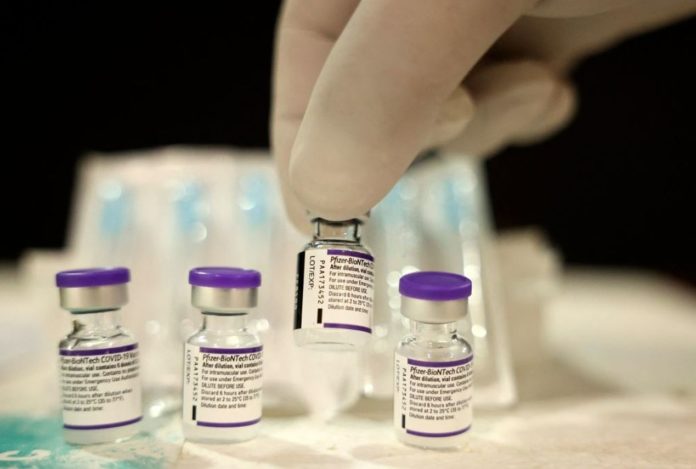Several studies have analyzed the SARS-CoV-2 specific humoral and cellular responses after Pfizer shots.
A two-dose regimen of BNT162b2, widely known as Pfizer vaccine, induced SARS-CoV-2 specific immunoglobulin G (IgG) antibodies, neutralizing antibodies, and CD4+ and CD8+ T cells, according to these investigations.
In this new report, scientists analyzed the available literature and noted some gaps or scarcity in data as listed below:
- Lack of available information or data of neutralizing antibodies or cell-mediated immune responses to SARS-CoV-2 after immunization with COVID-19.
- The use of longitudinal data and epidemiological studies on temporal changes in humoral and cellular mediated immune responses and their associated variables are limited.
- There are few studies on the relationship between humoral and cellular responses.
- More research into the humoral and cellular immune responses before and after the COVID-19 immunization regimen is needed to determine the effectiveness and duration of protection, as well as the differences in reporting based on various parameters.
This new long-term study, which was published on the medRxiv preprint server, looked at the changes in humoral and cell-mediated immune responses in hospital staff in Japan before, during, and after the BNT162b2 vaccine was given. Researchers looked at neutralizing antibodies, IgG antibodies, and T cell responses, as well as other variables.
In this investigation, researchers gathered samples from 100 hospital personnel ranging in age from 22 to 73 years and who had received the BNT162b2 vaccine. Samples were taken at five different times: on day 1 (after the first dose of vaccine), on day 15, on day 29 (seven days after the second dose of vaccine), on day 61, and on days 82-96. (during periodic health checkup). Serological, neutralization, and T cell testing were performed on these samples.
According to the present research, both IgG-S antibody and T cell responses peaked seven days after the second dose (day 29) and subsequently declined until the completion of the follow-up period. Following the second dose of BNT162b2 vaccination, researchers discovered that high levels of IgG-S antibodies were sustained for six to ten weeks. Surprisingly, this study found that T cell responses were detectable before neutralizing effect.
On days 15 and 29, there was a considerable increase in IgG-S titers, which dropped from day 61 onwards. Despite this, all of the subjects remained seropositive throughout the research. The findings of this investigation are consistent with the findings of a prior multicenter prospective study that found temporal changes in IgG-S titers among health care professionals at various points in time.
Antibodies were found two weeks after the first dose and peaked between days 14 and 28, when the second dose was given on day 21. These findings suggest that a person who got the BNT162b2 vaccine may develop sufficient neutralizing antibodies against SARS-CoV-2 seven days following the second dosage. To determine the neutralizing activity, the authors suggested a longer follow-up period.
Throughout the study period, the younger age group had considerably higher IgG-S titers, according to the researchers. This study implies that age is a significant determinant of vaccine-induced humoral immune responses. Furthermore, as previously noted, early detection of T cell responses indicates vaccine efficacy. The current investigation found no link between IgG-S and IFN-g production in T cells. Furthermore, no significant relationship was found between background characteristics such as age, gender, BMI, and T cell responses. Few patients in this study group exhibited greater IFN-g levels despite having low or moderate IgG-S levels, and vice versa.
The study’s main strength, according to the authors, is its longitudinal design, which allows for frequent estimates of antibodies and T cell responses before and after the COVID-19 vaccine regimen. The current study has significant limitations, including a small sample size of hospital employees. The optimal degree of neutralizing activity or cellular immunity to protect against SARS-CoV-2 infection was not determined as a second limitation.
Image Credit: Getty
You were reading: Early immune responses against SARS-COV-2 last for about six-ten weeks after 2nd dose of Pfizer vaccine
